15 APRIL 2016 7:32 AM
The hotel industry weathered the recession of the late 2000s and has experienced years of positive performance. But what about some of the major vacation ownership brands?
By JonSimon
Since 2011, a fundamental shift has transpired, whereby the major hotel brands like Marriott International, Hyatt Hotels Corporation, Starwood Hotels & Resorts Worldwide and most recently Hilton Worldwide Holdings have been divesting their vacation ownership units from their core hospitality and leisure platforms.
In this article we will look at a historical perspective of why hotel companies have entered the vacation ownership space and now, what is driving the divestiture of these business units from the conventional hotel brands.
Looking at recent history
In 1984, Marriott became the first of the major brands to enter the vacation ownership industry by acquiring American Resorts and its 122 units in Hilton Head Island, which eventually was re-branded as Marriott’s Monarch at Sea Pines. Disney was another major hospitality/theme park company who entered into the business in 1991 at Walt Disney World in Orlando. Hilton was the next player when it entered a joint venture with Grand Vacations Limited in 1992.
What the brands were demonstrating was that their well-known consumer hotel brands both attracted new customers and added strong credibility, which helped allay reputational issues. Hyatt,Starwood and Wyndham Worldwide Corporation entered the industry as well. Today, approximately 80% of timeshare sales originate from the major brands and independents, and with the help of the American Resort Development Association, most of the high-pressure reputational issues abated as the major hotel companies realized how important their brand name was.
So what happened? Where did the business model fall apart? In our opinion there are four key factors that were critical to a pending disassociation and subsequent divestitures:
The capital intensive nature of vacation ownership products to acquire, entitle, develop, build, sell and
http://www.hotelnewsnow.com/Articles/38412/Will-vacation-ownership-brands-rebound-like-hotels 1/4
4/19/2016 HNN
manage;
The returns on capital were not matching the needed returns that the management and branding operations
were supplying;
There were cultural issues between the core hotel company and the vacation ownership division in how
executives were compensated, the needs of the vacation ownership company in “purchasing” inventory from their sister company and its constant consumption of capital; and
The associated financial risk of the vacation ownership divisions during stressful economic times.
Capital-intensive nature
By their very nature and certainly in comparison with their traditional counterparts in the transient hospitality divisions, the vacation ownership divisions consumed a tremendous amount of corporate capital.
Interval Leisure Group, traditionally an almost pure asset-light company, acquired Hyatt’s vacation ownership division and should be closing on Starwood’s sometime in Q2 2016. ILG, who initially projected a combined capital investment of $141 million for 2016 to 2018 that includes Hyatt’s timeshare development, will likely see the same capital investment increase by an additional $770 million after acquiring Starwood’s VO group, which was renamed Vistana Experience.
ILG appears to be substantially increasing capital investment with the hopes of dramatically increasing earnings, securing its member base and capitalizing off of the top-tier brands in the vacation ownership space. Not only do these divisions require substantial capital to develop and build, substantial additional working capital is required due to the negative cash flow from operations during the initial years of sales at each individual resorts.
Returns on capital
Not only were the vacation ownership divisions requiring substantial capital, their returns were less than spectacular. Some of this was driven by allocated general and administrative expenses (from the branded hotel companies), but much of it was a simply the lower returns on larger capital investment.
Historically, Marriott’s hotel division has largely been a fee-driven, asset-light business model. While some capital was needed to acquire management contracts and brand agreements, much of this was related to “key” money or small slices of capital to get the management contract. Often, this capital was returned in one to two years with return on investment percentages in the high teens and low 20s. Some vacation ownership divisions were only returning a paltry 7% to 10% on a fully G&A allocated basis. While Marriott did invest capital to develop, it was largely to launch brands or secure long-term management contracts and then divest the hard asset (e.g. Edition Hotels).
Cultural issues
By its very nature, the vacation ownership divisions were led by their sales and marketing associates and executives who were focused on commissions. Commissions and over-rides often ran at 15% to 20% of each sale. The way their overall compensation was structured was very different than their transient divisions. Executives in the vacation ownership division could earn substantially more than their more-senior counterparts in the hotel division. Divestitures could help the hotel companies more closely align compensation with unique corporate cultures of these synergistic but different divisions.
http://www.hotelnewsnow.com/Articles/38412/Will-vacation-ownership-brands-rebound-like-hotels 2/4
4/19/2016 HNN
There are core differences between the traditional transient hotel/resort model and the vacation ownership business model. In fact, maintenance fees have escalated sharply as many vacation ownership companies restructure their business into club-based points programs in contrast to deeded interests at resorts. In a number of cases, we are seeing maintenance fees rising to as much as $2,000 per one-week interval or almost an additional $300 per night. When you take into account the lower-end vacation ownership companies, the average is about half that amount. Millennials are simply not buying this product in any volume. It is also substantially more complex in its accounting and treasury functions.
On top of these issues, it is highly regulated and management contracts can typically only be written for three to 10 years varying from jurisdiction to jurisdiction in contrast to 40-, 60- and even 100-year management contracts in the hotel divisions. Thus, while there are excellent synergies between the two product classes, the vacation ownership model simply presents substantially more human resource, treasury and management issues to contend with.
Economic risks
The vacation ownership industry was historically thought of being recession proof. But the specifics of the 2007- 2009 Great Recession shook the industry to its core.
Historically, recessions were judged on the amount of unemployment and successive quarters or months of negative GDP growth. However, the Great Recession of 2007-2009 had a third component which proved to be highly destructive to the entire capital markets and the vacation ownership divisions in particular.
There was a complete collapse of the asset-backed security market and an almost complete evaporation of liquidity in the marketplace. While their sister transient divisions fell in earnings before interest, taxes, depreciation and amortization as management and brand fees fell, due to declines in revenue per available room, they still made fees and had asset-light balance sheets.
However, on the vacation ownership division side, whole projects had to be shelved and in many cases sales had to be intentionally stopped or slowed down. Companies were forced to revalue and write off large sums of capital and charge such write-offs to corporate earnings. Additionally, the industry was devastated and a multitude of bankruptcies followed. This disproved the idea that the industry was “recession proof.”
And while the traditional hotel industry has prospered since 2009, setting records in virtually all metrics, the vacation ownership industry is still down approximately 20% ($7.9 billion in 2014) from its highpoint with the factional and PRC businesses struggling at levels one-sixth from their high point in. The value of the private and public timeshare companies fell precipitously, while still building their residential and ski operations.
Getting out of the vacation ownership
The major hotel brands are now divesting their vacation ownership divisions. Hilton recently announced its decision to do so. Wyndham appears to be an exception to the trend, but upon closer review, it’s much more of a traditional vacation ownership company with over 80% of its total revenues coming from vacation ownership- related divisions including traditional VOI sales, financing revenue, fees from managing the resorts and its rental and exchange divisions.
All of the publically traded vacation ownership companies have seen dramatic falls in their stock prices in the last 12 months although some like Marriott Vacations have recently rallied on news of share buybacks and increased dividends. In time, there could be a surge in these stock prices, as P/E multiples fall to sub 10-15 times earnings. A realignment of investors is currently taking place along with management looking for ways to lessen capital exposure. Further, consolidation should provide some downstream savings in corporate G&A where duplicative
http://www.hotelnewsnow.com/Articles/38412/Will-vacation-ownership-brands-rebound-like-hotels 3/4
4/19/2016 HNN
platforms can be eliminated for cost savings.
However, we believe that a pure capital-light vacation ownership company either will not be able to survive or will do so with substantially lower growth prospects. Rather, they will need to combine various capital asset strategies to survive and grow. In the end analysis, these companies will require substantial capital as contrasted with their hospitality counterparts in order to regain their historic revenue and earnings levels.
Jon R. Simon has a long and accomplished background in the hotels, resorts and vacation ownership industries where he has advised some of the largest U.S. investment funds, hospitality, gaming companies and high net worth individuals. He is currently the Managing Partner for Chasen Capital Advisors, Inc., and heads up their national hospitality practice.
The opinions expressed in this column do not necessarily reflect the opinions of Hotel News Now or its parent company, STR and its affiliated companies. Columnists published on this site are given the freedom to express views that may be controversial, but our goal is to provoke thought and constructive discussion within our reader community. Please feel free to comment or contact an editor with any questions or concerns.

